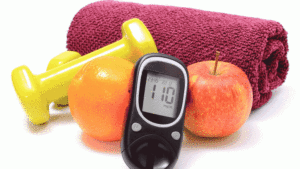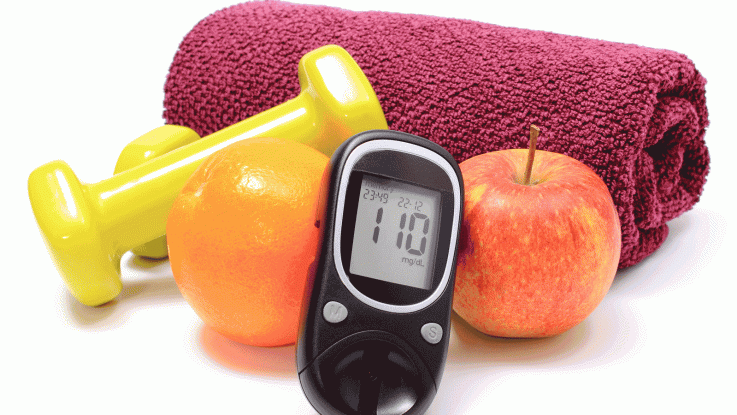
Diabetes and Benefits of Exercise
What is diabetes?
- A metabolic disease characterised by high levels of blood glucose.
What can cause diabetes?
- An auto-immune disease which destroys pancreatic beta cells. This leads to loss of insulin production and is known as Type 1 Diabetes (T1DM).
- Metabolic disorder due to an inappropriate response to insulin and pancreatic beta cell dysfunction. This is known as Type 2 Diabetes Mellitus (T2DM).
- Gestational Diabetes is an onset of variable carbohydrate intolerance during pregnancy.
- Other possible causes may be due to certain drugs such as Thiazides which is a common form of diuretic used t treat high blood pressure in individuals suffering from hypertension.
What should my Blood Glucose levels be?
- 4-7mmol/L or have a glycated hemoglobin reading of ≤7%.
Risk factors for developing T2DM
- Age – with age we become more resistant to insulin.
- Body Mass (obesity) – particularly visceral fat.
- Birth Weight (<9lbs).
- Family History.
- Race – African American, Aboriginal and Torres Strait Islander.
- Physical Inactivity.
How Can Exercise help my diabetes?
- Resistance training leads to the development of more lean muscle. Muscle stores glucose for a ready fuel source and therefore as lean muscle mass increases the body’s ability to store glucose increases.
- Exercise (both resistance and cardiorespiratory) leads to increased blood flow to peripheral muscles and further removal of glucose from the circulating blood.
- Exercise also induces a cellular response which leads to the increase of the number of insulin receptors available on the surface of the cells. These effects can last up to several hours post exercise.
Cautions for Exercise
- It is important to monitor your blood glucose levels before and after exercise to ensure you a safe to do so. Because exercise leads to greater glucose clearance it is common to see blood glucose levels drop significantly.
| If >16.9mmol/L | Postpone exercise and consult your doctor. |
| If >13.7mmol/L | Check for urinary Ketones; if present, postpone exercise. Also, check the timing of food consumption. |
| If 5.5 – 13.7mmol/L | Ok to begin Exercise. |
| If <5.5mmol/L | Consume 20-30g of carbohydrates (3-4 jelly beans). |



